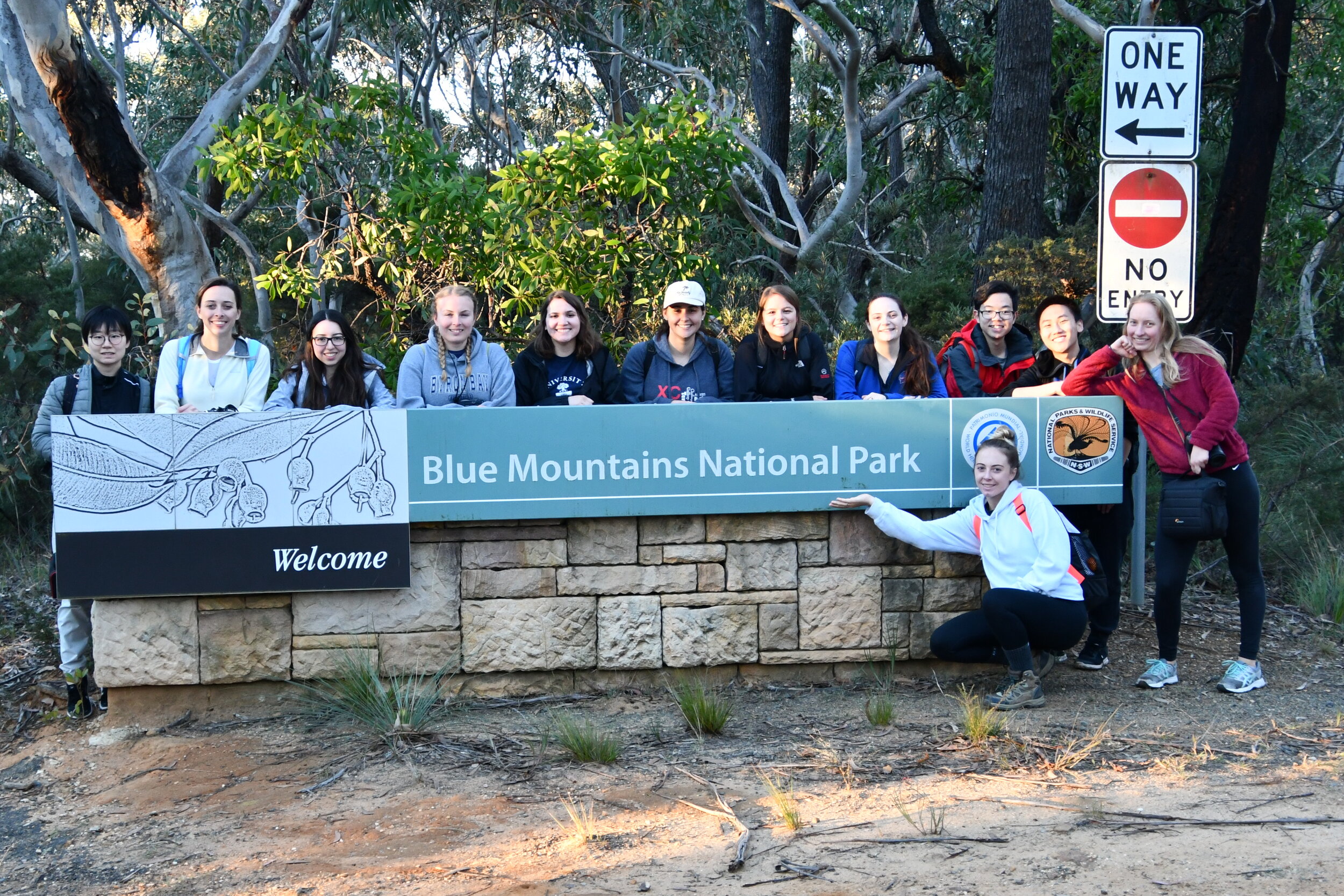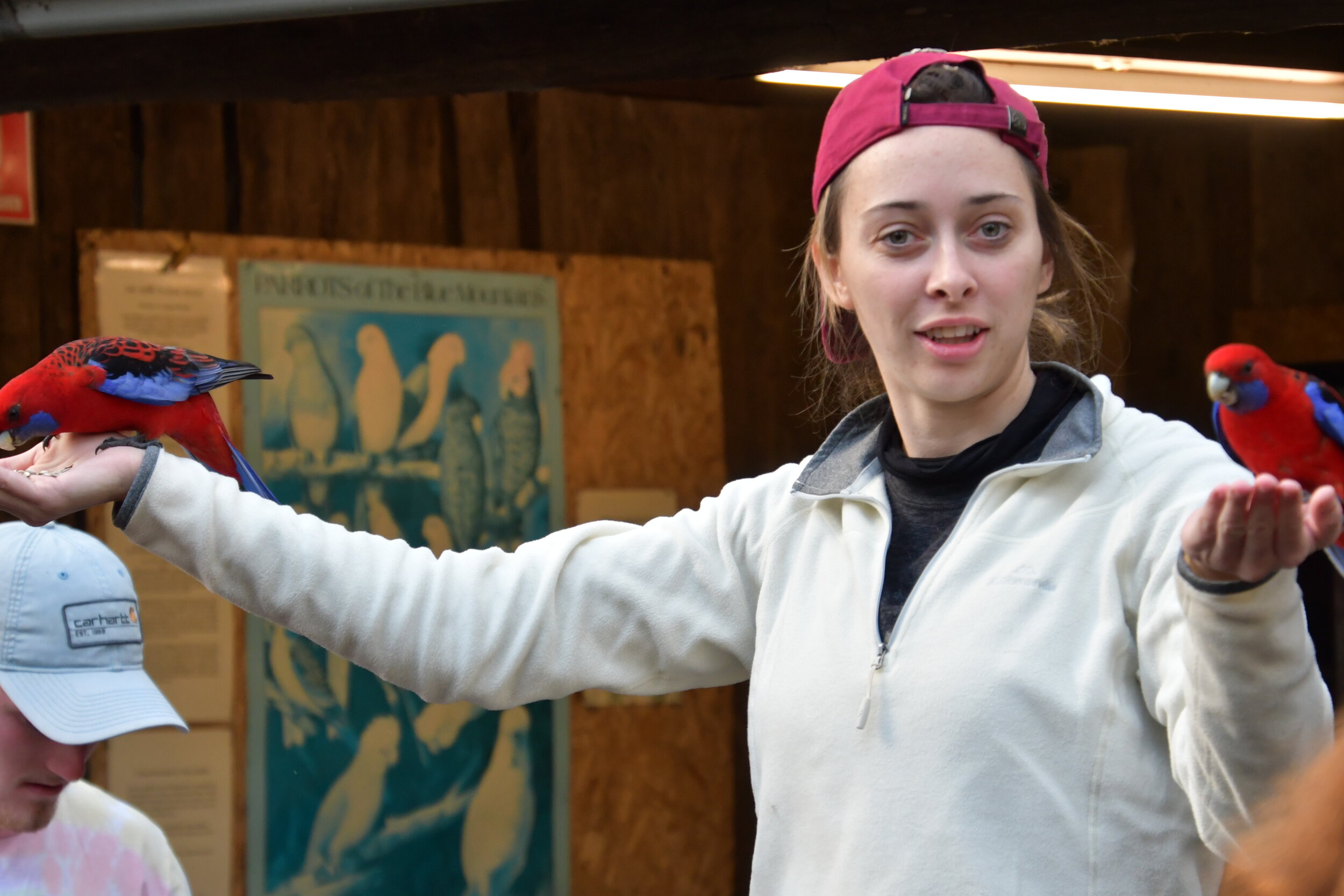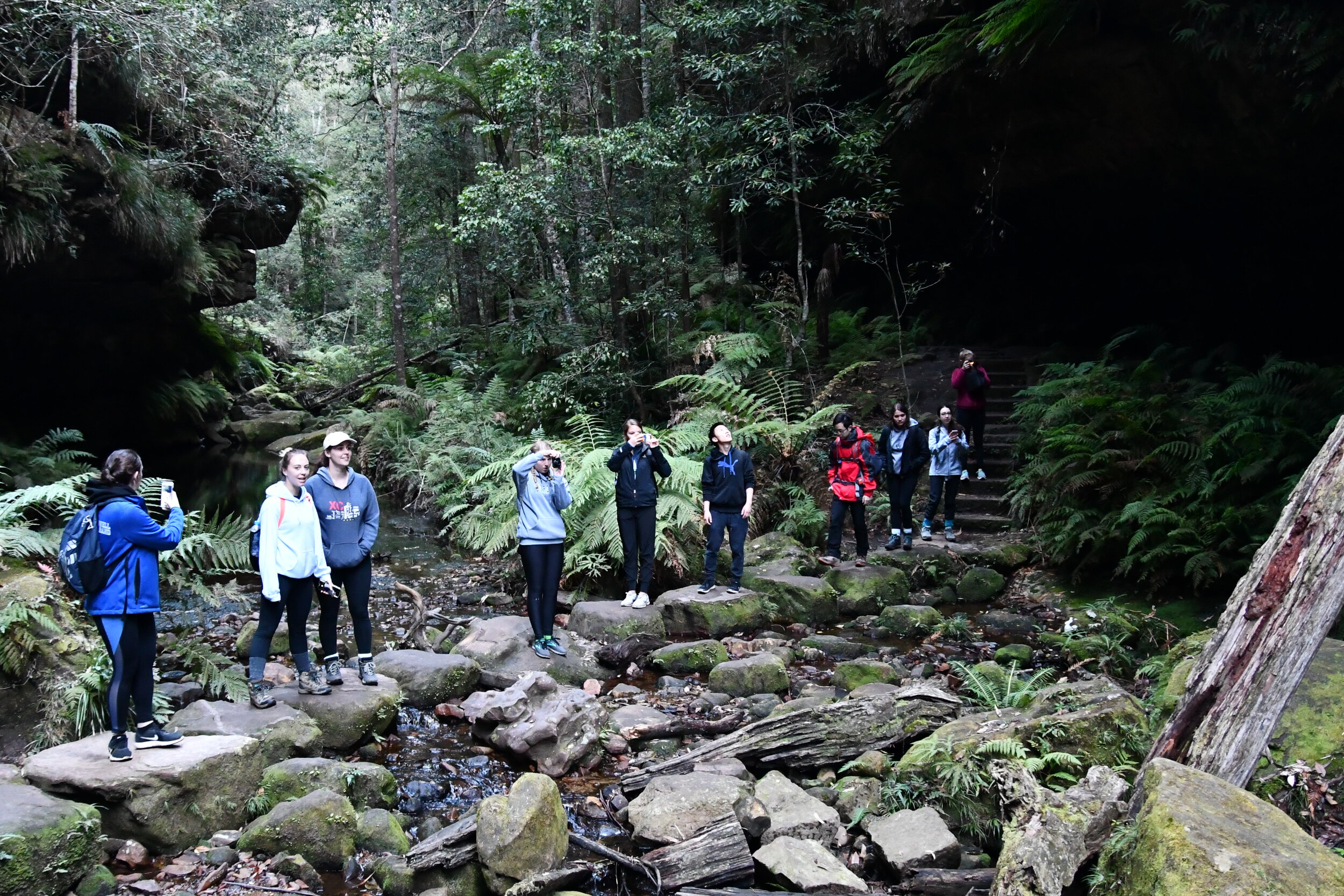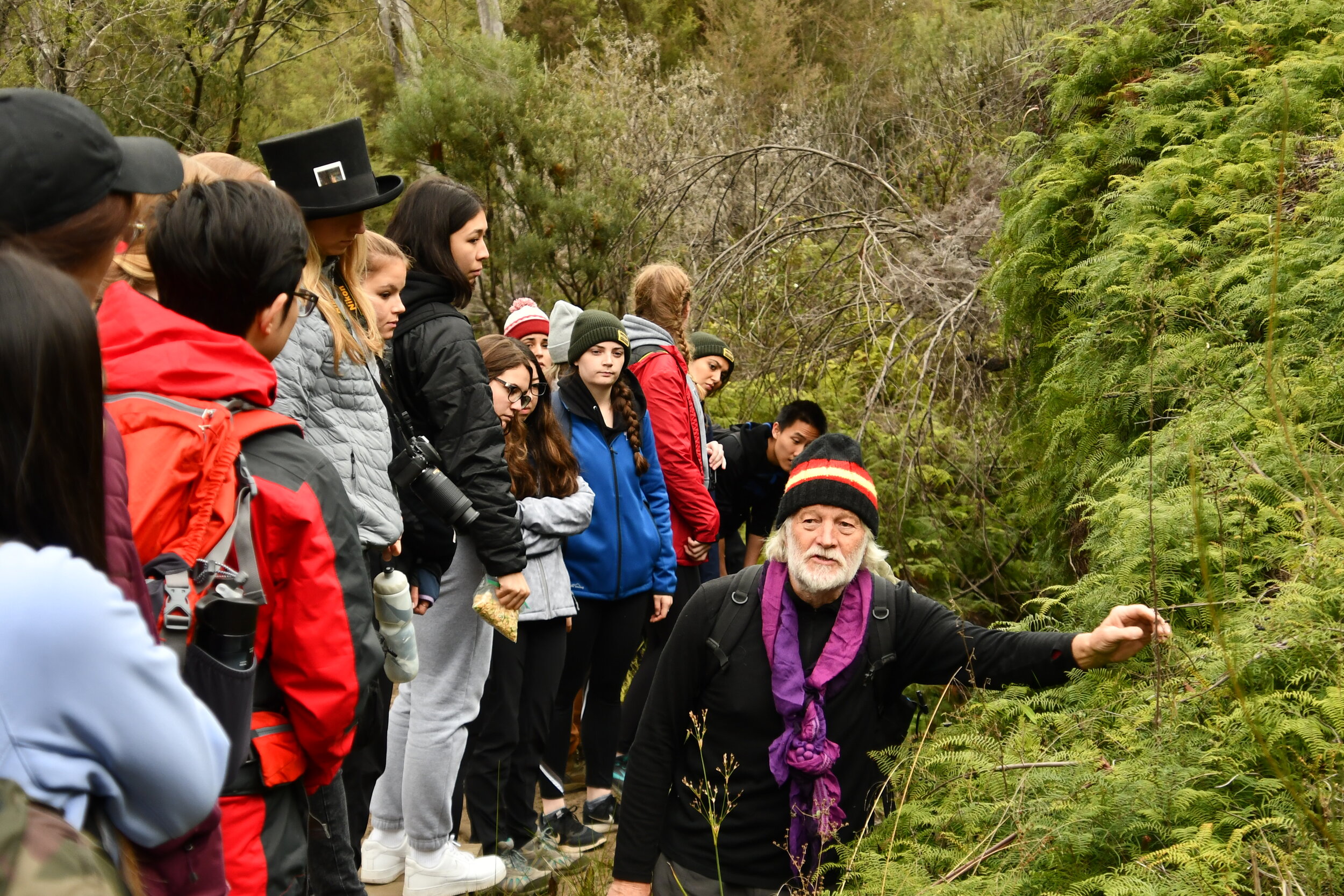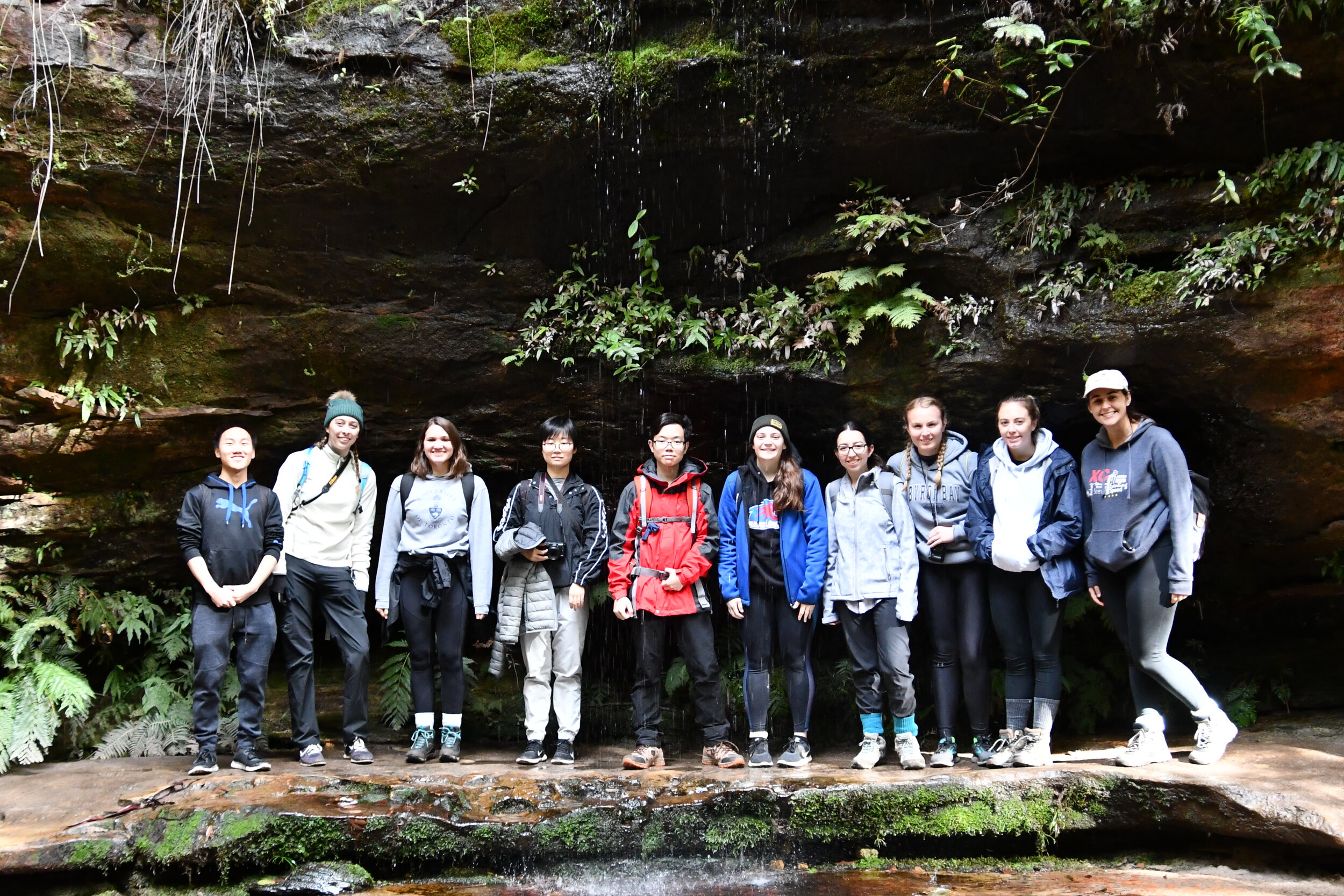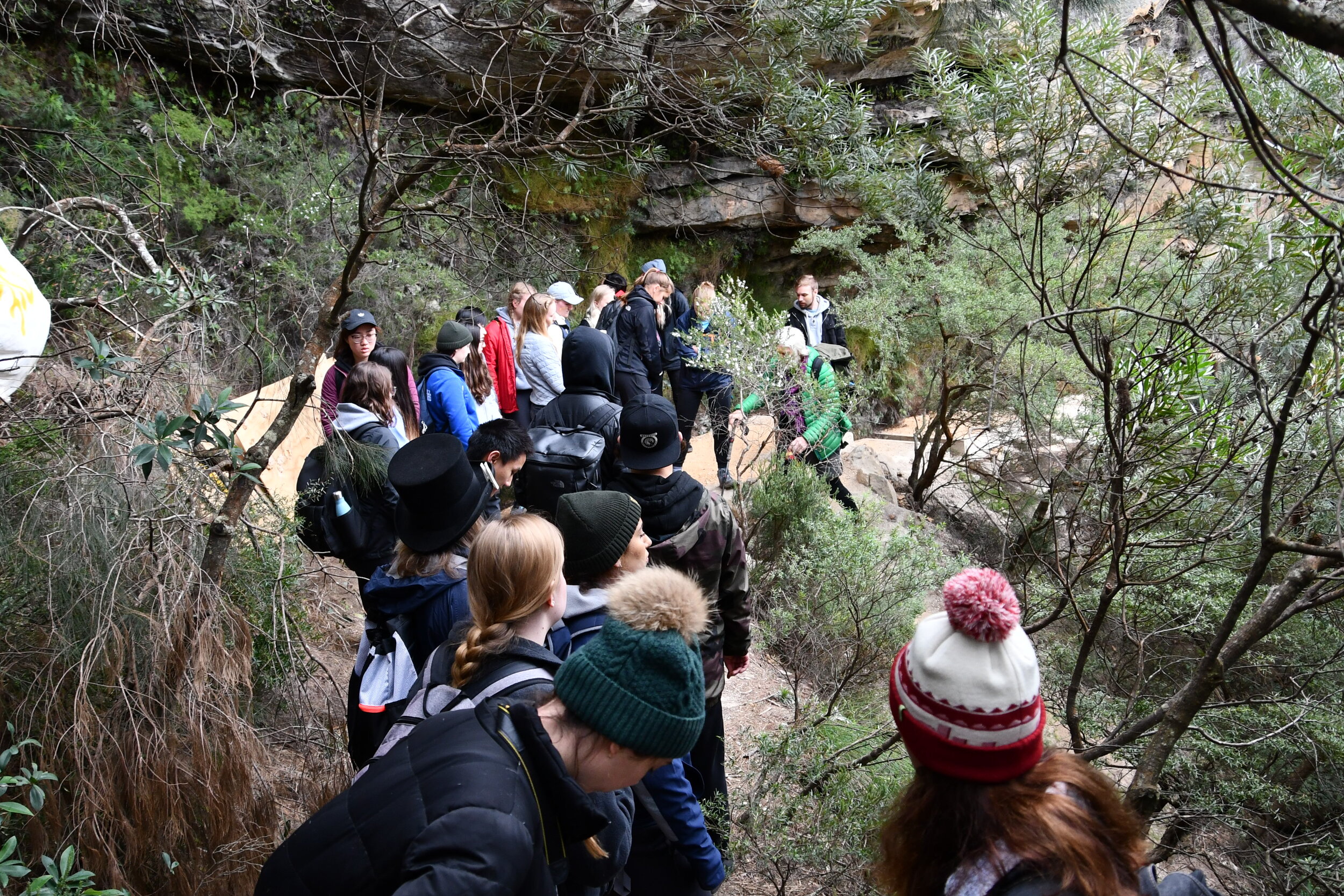UNIVERSITY PROGRAMS
Education programs run in collaboration with Australian and International Universities.
ENVIRONMENT, WILDLIFE AND CONSERVATION
A 3 week immersion into Australia’s protected areas for international university students.
Each year in June and July the Institute’s Education Program Leader, Rosalie Chapple, brings international university students to the Blue Mountains as part of a 3-week immersion in Australia’s protected areas.
During the multi-week travelling course, students visit protected areas in a range of climatic regions to observe Australia’s unique flora and fauna, and to understand the challenges of conserving and managing natural and cultural heritage in the 21st century.
The Environment, Wildlife and Conservation course is run via The Education Abroad Network (TEAN) and convened in collaboration with Brad Nesbitt. The course offers international students an unparalleled opportunity to receive an immersive introduction to Australia’s environment and wildlife through the eyes of local experts, contextualised within the global ecological crisis.
The nature-based program also allows the students to experience and engage in field research in some of Australia’s most unique and significant environments including the Blue Mountains, Gondwana, the Great Barrier Reef and the ancient Daintree Rainforest.
Alongside experiential learning in nature, the course includes an academic program that provides contextual understanding such as the scientific, historical and socio-cultural drivers of conservation problems and their management.
Students leave with a deeper connection to nature, coupled with an understanding of environmental issues and their management in Australia.
In the 2019 course, Wyn Jones, a local scientist and environmental conservationist, guided students on a nature walk through the Blue Mountains.
Other Australian climatic regions visited during the 2019 course included:
Sub Tropics: Byron Bay - Arakwal National Park, Nightcap National Park (Gondwana World Heritage Area).
Wet Tropics: Far North Queensland - Daintree National Park (Wet Tropics World Heritage Area) and the Great Barrier Reef (World Heritage Area).
COURSE TESTIMONIALS
“My excursions over the past couple of weeks have been the most exciting, most informative and most adventurous activities I have ever done.”
“This program has allowed me to confirm that I would like to pursue my studies in the conservation of biodiversity to ensure all species are able to have a life worth living in a safe environment. Overall, coming to Australia to take this course has been one of the best experiences of my life which allowed me to learn more about wildlife, conservation, and ways in which I can do my part in helping our planet.”
”Before taking this class, I ignorantly assumed that conservation decisions were made without much deliberation, that the right choice was clear, and that decisions were always made with the best interest of the species or land in mind. … now I feel informed about what can be done to save these species. This makes me feel so much more motivated to make a change in my home country.”
“One of the main takeaways I have gained from this trip is that the biggest struggle in regards to conservation is changing the behaviour of people. I feel far more equipped now to go out and spread awareness back home, and am very excited to (in my future studies) help uncover strategies that will get more people deciding to make more environmentally friendly and sustainable choices more often!”
PROTECTED AREA MANAGEMENT IN PRACTICE
A short field-based course for the UNSW Masters of Environmental Management
Students from the UNSW Master of Environmental Management program, studying protected area management in the Blue Mountains.
This intensive field-based course, created and run by BMWHI Education Program leader Dr Rosalie Chapple, introduces students to the inter-disciplinary nature of natural resource management and environment and society leadership while immersed in the context of the protected Blue Mountains World Heritage area.
The course includes field-based learning to engage experientially in the complexity, challenges, and dynamism involved in custodianship of protected biodiverse places and illuminate ever-changing ecological and sociocultural demands. Through developing awareness, self-reflection, and engaging with different knowledges, students will fine-tune their purpose and approaches as an environment and society leader.
Students participate in field-based activities including bushwalking.
At the site level in the Blue Mountains, students see first hand how the active management of threats is important for conservation goals to be met. Students go into the field for three days with professionals from government management agencies and with local ecologists, to confront on-ground management challenges such as fire, introduced species and continuation of Aboriginal cultural practices. These topics are explored using an interdisciplinary problem orientation framework and social process mapping.
Students explore the social processes of what is taking place in managing the environment, to unearth and work with the multitude of understandings, opinions, differences, tensions, assumptions and contexts that emerge, and this exploration helps to clarify our purpose as environmental managers. This way of working develops awareness and self-reflection, and enhances the understanding of our patterns of thought that shape our behaviours, defaults, and our values and beliefs. The goal is to engage with and understand our differences so that we can bring about more effective decision processes. No prior knowledge of ecosystems science or management is required.
The Blue Mountains World Heritage Area is chosen as a protected area case study facing a host of challenges in our rapidly changing world. Students are required to participate in bushwalking and a level of fitness is required.
